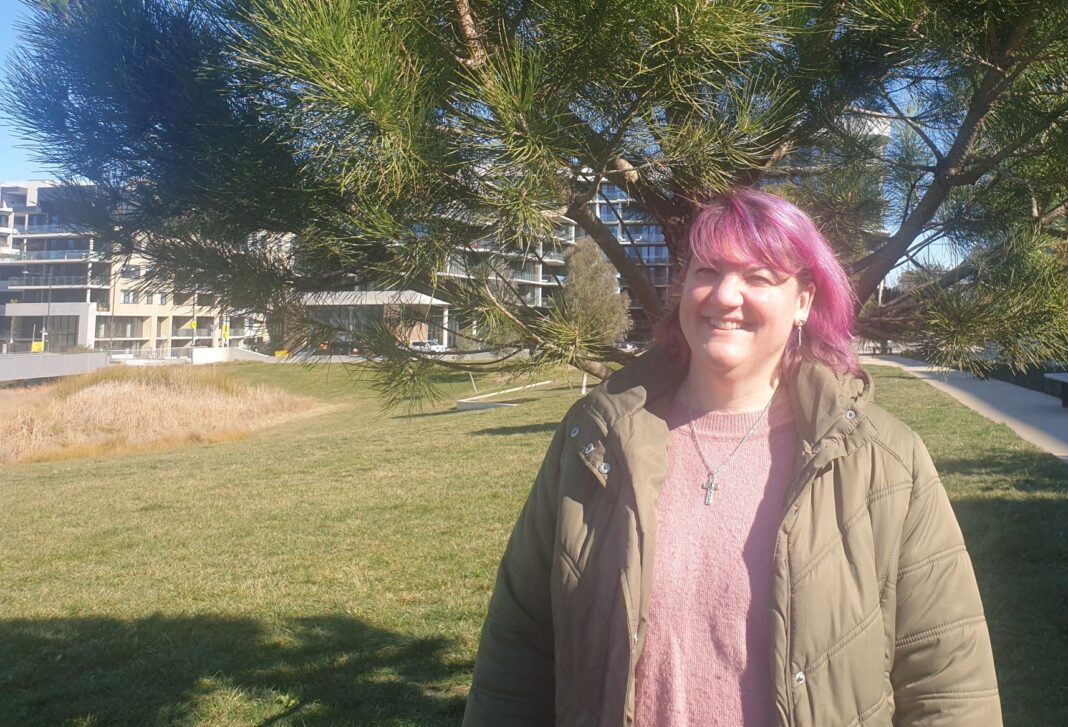5-minute read
Women with Disabilities ACT (WWDACT) recently conducted a series of online workshops to empower their members to advocate for their individual needs and for systemic changes in government services, the medical system and the workplace.
This year’s snapshot of the health of people living with a disability from the Australian Institute of Health and Welfare found 32% experienced high or very high psychological distress, compared with 8% of the wider population.
Compared to those without a disability, people with a disability are twice as likely to be unemployed and more likely to have experienced violence, intimate partner violence and sexual abuse.
Each year, the Australian Human Rights Commission receives more complaints about disability discrimination than any other form at 42%, followed by sex discrimination (27%) and racial discrimination (14%).
WWDACT chief executive officer C Moore said the workshops were created in response to a general lack of knowledge from its 188 members about the available resources and how to access and navigate them.
“We found women with disabilities just didn’t know their rights which stopped them advocating for themselves,” they said.
WWDACT member Bianca Rossetti discovered the workshops on her Facebook feed, and attended on zoom from the comfort of her own home without needing childcare.
Bianca said the presenters were “inviting and engaging” and made sure everyone was comfortable. The workshops were inclusive and supportive as they were closed captioned and presented with Auslan – she was even sent out material in Braille.
“I learnt so much,” she said.
“The first session had the most impact. It focused on self-confidence which was a good foundation; in order to advocate you need that self-confidence.
“Each session built on that.”
Bianca said the workshops directed her to organisations that would listen to her and connected her with other people who faced similar barriers in their life.
“I have concerns and issues that similar people have, I’m not isolated,” she said.
“You talk to support groups online and you all feel like nothing is going forward.
“People need to be aware of these issues because I’m not some alien person.
“Where are we going wrong? Where is the gap in services and why isn’t the government listening to people’s needs?
“You can get in that rut of hearing people’s issues and having your own issues, but we need to do something and that’s where advocacy comes in.”
Having lived in Canberra for 10 years and dealt with her mental illness for 20, Bianca hopes to use her new skills to effectively navigate the health system, which she said is a mess.
“I have a mental illness,” she said. “The stats say one in four people do.
“It’s really hard to find the right access point into the medical system.
“You only get support when you’re at crisis, but we should have enough options that you don’t get to that point.
“You ring and they say, ‘oh sorry, we don’t have a place’, or you don’t have a doctor’s referral or a psych referral.
“When you’re okay, but on the edge of not being okay, it seems no one is there to help you.
“You get help when you are in crisis, but crisis is uncomfortable and suddenly you’re exposed to this unwelcoming mental health system. You try and prevent that.”
Bianca said she didn’t use private mental health services due to the cost, but that there was also a cost to waiting for public health.
The workshops helped Bianca provide self-care and self-support in the waiting period.
Now, she has two self-soothing kits (a sensory toolkit often used in dialectical behaviour therapy to help people stay grounded and fight anxiety) – one for the home and a mobile kit.
“You’ve reached out and been told there’s a wait, meanwhile, you need something to focus on so as not to feel hopeless or out of control.”
She also plans to advocate for discounted access to mental health courses.
Bianca is a carer and uses the National Disability Insurance Scheme (NDIS); she said although using NDIS has been a “nightmare beyond a nightmare” she is established now and has no plans to “rock the boat”.
“It’s good when you have it and it’s working and but the amount of work you have to put in to get to that point is crazy. Why is it so complicated?”
Bianca’s case is reviewed every year and she said she is a “complete mess” for the two or three weeks beforehand.
“I’m so stressed out that they will stop it because I haven’t used it all and I have to go in there and talk about the absolutely worst times of my life – every time.”
Currently unable to commit to full-time work, Bianca volunteers with the Black Dog Institute teaching year nine students about mental health, which gives her a sense of purpose.
“It’s role play, based on what the students need,” she said.
“We explain what mental health is, how to identify changes in your friend’s behaviour and what to do if you do see those changes.
“We’re covering a lot of stress, crisis and depression at the moment because of COVID.”
Bianca said she encounters people with a ‘why don’t you just get a job’ mentality and it’s hard for some to understand that she has capability in some areas and not others.
“Most people want to contribute to society,” she said. “But their capacity might be less than 20 hours.
“Four hours a week is my limit, so if you can find me a job that’s four hours a week, I’ll happily do that – but jobs like that don’t exist.
“It’s really hard because my illness is so episodic; I can be going really well and then it changes and I’m not doing so well.
“So, it’s about maintenance – and doing the [WWDACT] course gave me the confidence to contribute to society.”



